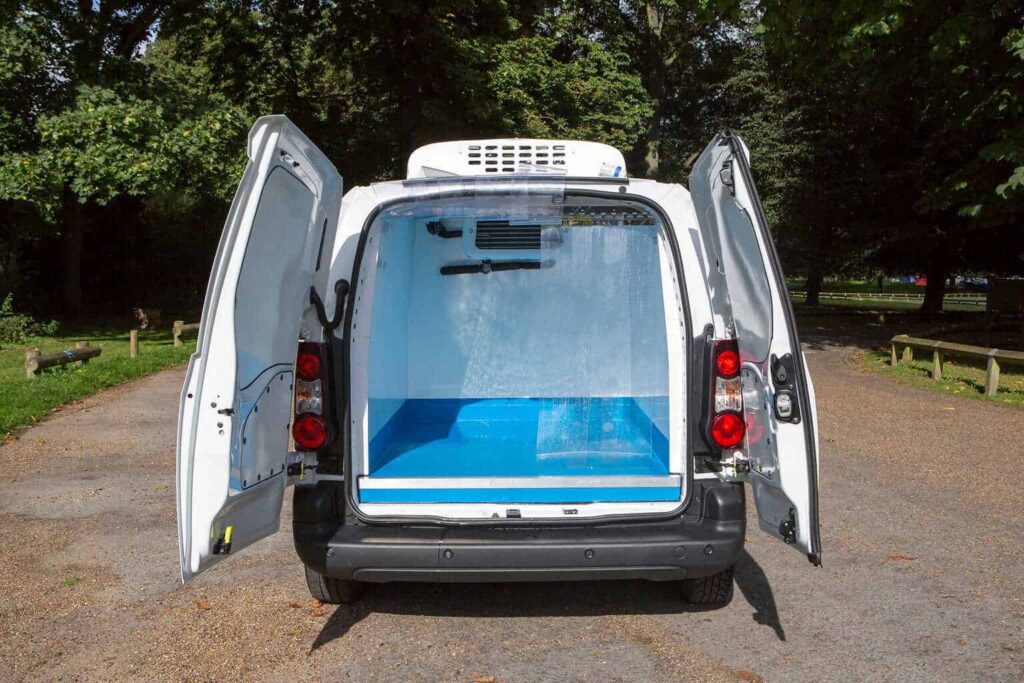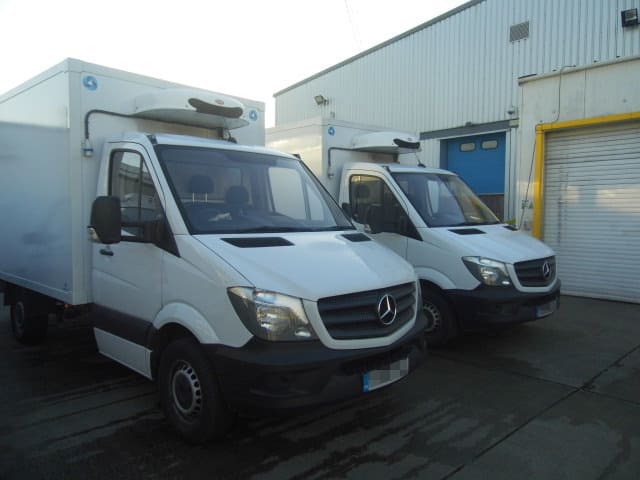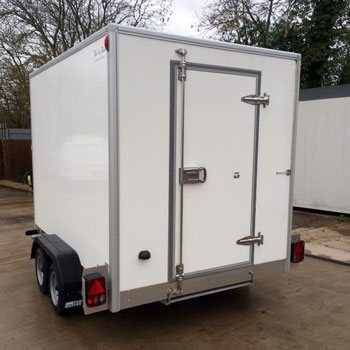The distribution of vaccines, particularly those that safeguard us against the flu, is a matter of national importance. With the ever-present need to protect vulnerable populations, the process of flu vaccine logistics demands precision, reliability, and consistency.
At the heart of this process lies one critical element: temperature control.
In this blog, we explore why maintaining the correct temperature is essential for flu vaccine distribution, the challenges of ensuring efficient delivery across the UK, and how companies like FridgeXpress are playing a pivotal role in keeping the nation healthy.
The Significance of Temperature in Vaccine Efficacy
Vaccines are sensitive biological substances. Whether they are protecting against seasonal flu or more severe diseases, vaccines must be stored within specific temperature ranges to maintain their efficacy.
The optimal storage temperature for flu vaccines typically ranges between 2°C and 8°C. Exposure to temperatures outside this range—whether too high or too low—can degrade the vaccine’s potency, rendering it ineffective.
This stringent temperature requirement applies to storage at hospitals, pharmacies, and vaccination centres and during transportation. From the moment vaccines leave the production facility to the point they are administered, they must remain within the required temperature range.
Even brief periods of deviation can risk a vaccine’s ability to provide immunity, which could lead to increased susceptibility to flu in vulnerable populations and potentially serious public health consequences.
A Wake-up Call: The Covid-19 Pandemic
While flu vaccines have always required careful logistical planning, the recent COVID-19 pandemic shed a stark light on the importance of vaccine distribution and the challenges that accompany it.
During the pandemic, the UK and many other countries were forced to ramp up their vaccine delivery efforts at an unprecedented scale. The distribution of COVID-19 vaccines, which also required temperature-controlled storage and transportation, was a monumental task that highlighted both the strengths and weaknesses of global and national supply chains.
Flu vaccine logistics, though well-established, benefited from the lessons learned during the pandemic. The sheer volume of vaccines that needed to be delivered, the speed at which distribution needed to occur, and the wide range of locations—hospitals, care homes, temporary vaccination centres—required robust and flexible temperature-controlled delivery solutions.
The COVID-19 response served as a proof of concept for how quickly the UK’s logistics network could adapt to large-scale demands, with companies like FridgeXpress stepping in to ensure that the nation’s vaccine supply remained stable and secure.
A Remarkable Operation: The Covid Vaccine Rollout
Once a Covid-19 vaccine was approved, the scale and speed of the operation to manufacture and deliver it across the UK were nothing short of remarkable. Within weeks of approval, the NHS, supported by a network of logistics partners, began distributing millions of doses to every corner of the country.
This unprecedented logistical feat required coordination between government agencies, pharmaceutical companies, manufacturers, and specialist transport providers to ensure that vaccines were not only produced rapidly but also delivered safely.
Manufacturing capacity, which had been ramped up in anticipation of vaccine approval, kicked into high gear as soon as the green light was given. Production facilities operated around the clock to meet the immense demand.
What made this achievement so remarkable was not just the sheer number of vaccines being produced but the speed at which they were turned around from the factory floor to the arms of patients. For a country as geographically diverse as the UK, with both densely populated urban centres and remote rural communities, this required flawless coordination at every level of the supply chain.
The logistics of transporting millions of doses of temperature-sensitive vaccines posed a significant challenge. Each vaccine had to be kept within strict temperature limits to remain effective, and any deviation could have rendered entire batches unusable.
This required a robust cold chain that stretched from the manufacturing plants to local healthcare providers. Refrigerated vans and trucks became a critical asset in this operation. They ensured that vaccines remained at the correct temperature from the moment they left the factory until they were delivered to hospitals, GP surgeries, and vaccination centres.
What made the Covid vaccine rollout even more impressive was the sheer repetition of the process. Vaccines needed to be delivered not just once but again and again, as booster shots were required and new variants of the virus emerged.
This meant that the logistical efforts continued for months, ensuring that the UK’s population could access the vaccine whenever they needed it. During this time, temporary vaccination centres, such as pop-up clinics and drive-through locations, were set up to expand the reach of the programme. These sites relied on the efficient and timely delivery of vaccines, often on short notice.
The Covid vaccine rollout highlighted the resilience and adaptability of the UK’s logistics network. It proved that, even in the face of a global health crisis, the country could mobilise its resources quickly and efficiently. The success of the vaccine distribution effort wasn’t just a logistical triumph; it was a lifeline for millions of people, providing them with the protection they needed in the fight against a deadly virus.
As the UK now turns its focus back to seasonal flu vaccines, the infrastructure and expertise developed during the pandemic continue to play a vital role. While the urgency may have diminished, the lessons learned remain invaluable for future vaccine logistics.
Even though the pandemic has largely subsided, the ongoing need for both flu and Covid-19 vaccines continues. Seasonal flu remains a significant public health concern, particularly for older adults, young children, and those with compromised immune systems. The need to deliver vaccines on time, in optimal condition, and across geographically diverse locations remains as critical as ever.
Challenges in Flu Vaccine Logistics
The distribution of flu vaccines faces several unique challenges, particularly when it comes to maintaining temperature control:
- Maintaining Fleet and Fleet Size: Delivering flu vaccines across the UK requires a reliable fleet of refrigerated vehicles. Maintaining the right number of vehicles to handle fluctuating demand, particularly during peak flu season, is a constant challenge. Vans must be serviced regularly to avoid breakdowns, and scaling up fleet size to meet surges in vaccine delivery requires careful planning and resource management.
- Geographical Disparities: The UK’s population is spread across densely populated urban centres, rural villages, and remote locations. Delivering vaccines to large hospitals in major cities might seem straightforward compared to reaching small GP surgeries or pop-up vaccination centres in isolated areas. Each route demands reliable transportation solutions to ensure vaccines are delivered without compromising their integrity.
- Climate Variability: While the UK is not known for extreme weather, fluctuating temperatures and changing seasons present logistical hurdles. Winter months, when flu vaccination is most crucial, can see temperatures drop below freezing, while summer can bring unexpected heatwaves. Both extremes threaten the delicate balance required to keep vaccines within their safe temperature range during transport.
- Last-mile Delivery: Perhaps the most critical part of vaccine distribution is the final step—getting vaccines from regional depots to local healthcare providers. Last-mile delivery is often fraught with challenges, from traffic delays in urban areas to long distances between rural centres. During this phase, maintaining the cold chain (the uninterrupted refrigeration of vaccines) is paramount.
- Staff Training and Awareness: Temperature control is not just about the equipment. Staff involved in the transport and handling of vaccines must be properly trained to monitor and maintain the cold chain at every stage. Without adequate knowledge, even the best equipment may fail if protocols are not followed.
- Vaccine Supply Fluctuations: Vaccine production can vary year by year, especially for flu vaccines, which are tailored to the strains expected to circulate in a given season. Sudden spikes in demand, as seen during the COVID-19 pandemic, can strain the logistics network, requiring companies to scale up their operations quickly to meet national needs.
The Role of Refrigerated Vans in Vaccine Distribution
Given the critical importance of maintaining temperature control during vaccine transport, refrigerated vehicles play a central role in vaccine logistics. Companies like FridgeXpress, which specialise in hiring and leasing temperature-controlled vans, are key players in ensuring that flu vaccines reach their destination in optimal condition.
FridgeXpress offers a range of refrigerated vans designed to meet the varying needs of healthcare providers, whether they require small vans for local deliveries or larger vehicles for transporting high volumes of vaccines over long distances. These vans are equipped with advanced temperature monitoring systems, ensuring that vaccines remain at the required 2°C to 8°C throughout their journey. Real-time data logging allows operators to monitor temperatures remotely, providing peace of mind that the cold chain remains intact.
Additionally, FridgeXpress’s fleet is designed for flexibility. Whether it’s a long-term lease for consistent deliveries throughout flu season or short-term hires to handle sudden spikes in demand, their vehicles can be scaled up or down as required. This flexibility proved invaluable during the Covid pandemic when the demand for refrigerated transport surged, and companies like FridgeXpress stepped in to meet the challenge.
Lessons from the Covid Pandemic: Scaling Up Distribution
The COVID-19 pandemic taught the logistics industry many lessons, especially regarding the need for flexibility and scalability. At the height of the pandemic, the NHS had to ramp up its vaccine rollout almost overnight. This meant rapidly expanding vaccine storage capacity, identifying new delivery routes, and scaling up the use of refrigerated vehicles.
Flu vaccine distribution, though smaller in scale than COVID-19, faces similar logistical hurdles each year. Flu vaccines must be delivered to a wide range of locations, from large hospital hubs to smaller GP surgeries and pharmacies. Timing is also critical, as vaccines must be administered before flu season peaks to provide optimal protection.
During the pandemic, the ability to quickly lease additional refrigerated vehicles from companies like FridgeXpress was crucial. Temporary vaccination centres were set up across the UK, and pop-up sites needed reliable deliveries of temperature-sensitive vaccines.
While the pandemic may have receded, the infrastructure and lessons learned from that experience have paved the way for more efficient and scalable flu vaccine distribution in the future.
The Ongoing Importance of Vaccine Delivery Logistics
The need for efficient vaccine logistics remains. Covid-19 vaccines are still required to combat new variants, and flu vaccines remain a vital part of public health efforts. The logistics infrastructure established during the pandemic has been repurposed to ensure that both types of vaccines continue to be distributed effectively across the UK.
The NHS and other healthcare providers depend on reliable logistics partners to ensure that vaccines reach patients safely and on time.
Companies like FridgeXpress play a crucial role in this process, offering temperature-controlled vehicles that ensure the cold chain is maintained from start to finish. The importance of this cannot be overstated, as any break in the cold chain could render vaccines ineffective, putting public health at risk.
Protecting the Future Through Reliable Vaccine Delivery
The delivery of flu vaccines, along with other vital vaccines, is a logistical challenge that requires precision, flexibility, and a commitment to maintaining strict temperature control. Companies like FridgeXpress, which provide specialised refrigerated vehicles for rent and long-term hire, are at the forefront of ensuring that the UK’s vaccine supply remains intact from production to administration.
While the COVID-19 pandemic highlighted the importance of vaccine logistics, the lessons learned continue to shape how flu vaccines and other critical medical supplies are transported across the country.
As we move forward, the need for temperature-controlled logistics remains as essential as ever, ensuring that vaccines reach those who need them most—safely, reliably, and in perfect condition.
Working with a specialist company like FridgeXpress makes sense. We have a large range of experience in supplying companies with the right vehicle for their operation, ensuring that vital supplies such as vaccines are not only delivered on time but in pristine condition. In short, we provide the support you need to ensure that our operation runs as smoothly and as safely as possible.
Find out today what FridgeXpress can offer. Contact our expert team to begin the conversation.




